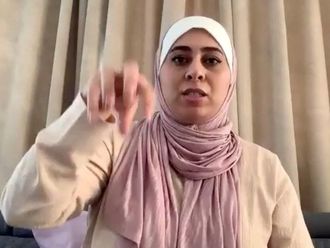Dubai
The most significant aspect of the Syrian uprising in the year 2012 is the failure of the international community to prevent the deaths of tens of thousands of Syrians.
Although Syria was kicked out of the Arab League on November 12, 2011, its rebels received a very slow response from both Arab states and the international community to assist them — much unlike Libya.
Syria’s uprising has shifted from popular street protests against President Bashar Al Assad to a full-fledged war, in a far cry from the idealism of the Arab Spring.
The fervour born in March 2011 for democratic reforms still runs high, but the initial peaceful protests against Al Assad’s regime have been overtaken by the government forces’ brutal crackdown. Now nearly 21 months into the revolt, rebels control large swathes of rural territory as well as a number of medium-sized towns.
In northwest Syria, they hold sway from Aleppo all the way to the Turkish border. Many believe the Syrian regime is weakening by the day and that it is “the beginning of the end.”
Having failed to recover lost ground, the regime’s military strategy has switched to defending the capital, major cities, strategic main roads and the Alawite heartland on the Mediterranean coast. Government forces pound rebel-held villages and town districts, apparently regardless of civilian casualties.
On October 18, a bomb dropped by a MiG warplane on an apartment building in the central town of Maaret Al Numan killed more than 40 people, including 22 children, crushed under the rubble.
According to the Syrian Observatory for Human Rights, which has tirelessly documented the bloodshed, more than 42,000 people, mostly civilians, have been killed over the past 21 months. Hundreds of thousands of Syrians have been displaced or forced into exile. The international community, meanwhile, has been reduced to an observer, stumped by divisions within the UN Security Council.
Diplomatic pressure
Despite mounting diplomatic pressure, Al Assad has been able to count on the support of both Russia and Iran. On December 13, in a rare departure from policy, Russian Deputy Foreign Minister Mikhail Bogdanov said that the regime may lose the war. The US welcomed his comments saying Russia was “finally waking up to the reality.” However, the next day a Russian foreign ministry spokesman backtracked and said that Russia’s support for Syria was “unwavered”.
Most observers worry that the further the conflict drags on the more possibility for radicalization. Some extremist groups and foreign fighters with obscure Al Qaida ties have been fighting alongside rebels.











